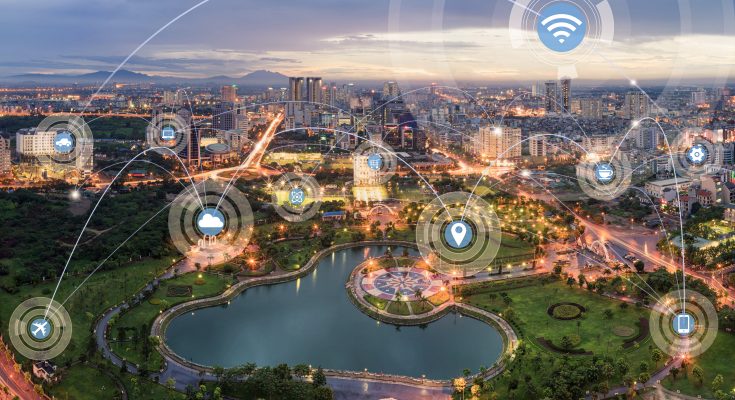Covid-19 is believed to accelerate the development of smart cities.
Nearly eight out of 10 UAE residents believe that that they would be happier living in a smart city, says a new survey conducted by MasterCard in conjunction with Smart Dubai and Expo 2020.
While 54% of respondents expect Covid-19 to accelerate the development of smart cities, many respondents also reported that they would expect habits adopted during the pandemic to change their behaviour permanently.
The survey found that the top three trends which were expected to continue included working from home, less cash and preference for contactless payments and reduced shopping trips to malls and an increase in online shopping.
The survey found that majority (67%) of respondents expected their smartphones to be the primary channel to access city services. Respondents cited ultra-fast mobile connections, driverless taxis, and virtual medical diagnoses from AI doctors as the most exciting innovations in the cities of the future.
The study found that an overwhelming segment (53%) of UAE respondents consider living in a sustainable city as the most exciting innovation in future smart cities, and this increases with respondents’ age.
‚ÄúConsumers are clear about their expectations, and it is the responsibility of the private and public sectors to come together to build inclusive, dynamic cities,‚ÄĚ said Elias Aad, vice-president and head of strategic growth business for Mena at Mastercard.
Iman Alomrani, deputy chief technology officer, Expo 2020 Dubai, said sustainability is integrated throughout Expo 2020 Dubai, creating meaningful impact and inspiring the global community to take action towards a cleaner, safer, healthier future.
‚ÄúIt is extremely encouraging that people consider sustainable practices as vital to their cities of the future,‚ÄĚ she during the launch of the report.
Meera Al Shaikh, international relations and partnerships section manager at Smart Dubai, said over the past few years, Dubai’s profile as a smart city has substantially improved that meets the needs of its citizens.
‚ÄúThe quest to continue learning, knowledge contributions and collaborations is key to the development of tomorrow‚Äôs smart cities,‚ÄĚ she added.
Globally, it is estimated that there will be 43 megacities by 2030 with 10 million inhabitants in each city. By 20205, an additional 2.5 billion people will be added onto urban areas.
Image: Hanoi Photography / Adobe Stock

